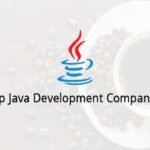
In the ever-evolving landscape of web development, choosing the right framework for building robust and scalable applications is paramount, especially for enterprises seeking to stay competitive in the digital age.
Laravel, a PHP-based web application framework, has emerged as a front-runner in this regard, offering a wide array of features and benefits that cater specifically to the complex needs of large-scale businesses.
In this article, we delve into the top 10 advantages of Laravel development services for enterprises, shedding light on how this framework can empower organizations to streamline their development processes, enhance the user experience, and achieve their digital objectives with greater efficiency and effectiveness.
Whether you’re a CTO exploring new technologies or a business owner seeking to leverage the power of Laravel, this comprehensive guide will demonstrate why it’s the go-to choice for enterprise-level web development.
08 Benefits of Laravel Development Services for Your Company
Laravel, a robust and versatile PHP web application framework, has gained widespread acclaim in the world of web development for its ability to streamline and simplify the process of building modern, scalable, and feature-rich applications.
If you’re considering Laravel development services for your company, you’re on the right track to leverage a multitude of advantages that can significantly benefit your organization. In this article, we explore ten key benefits of Laravel development services for your company, highlighting how this framework can elevate your web development projects and contribute to your business’s success.
1. Rapid Development
Rapid development is a central pillar among the myriad benefits of Laravel development services. In the context of Laravel, rapid development signifies the ability to expedite the creation of sophisticated web applications without compromising quality.
This framework offers an elegant and intuitive syntax, reducing the time and effort required for coding. Moreover, Laravel provides a treasure trove of pre-built components and libraries, known as packages, which can be seamlessly integrated into projects.
These components cover common functionalities such as user authentication, form handling, and routing, enabling developers to circumvent the time-consuming task of reinventing the wheel. By leveraging these inherent advantages, Laravel empowers development teams to accelerate the pace of application development, delivering robust, feature-rich solutions to the market faster than ever before.
This not only enhances time-to-market but also provides businesses with a competitive edge in the fast-paced world of digital innovation.
2. Highly Secure
In the realm of web application development, security is an uncompromisable facet, and Laravel’s development services shine brightly in this aspect. One of the paramount benefits of Laravel is its inherent commitment to security.
The framework comes fortified with a multitude of built-in security features and practices that safeguard web applications against common vulnerabilities. Laravel offers robust protection against cross-site request forgery (CSRF) attacks, ensuring that malicious actors cannot trick users into performing unintended actions.
Additionally, Laravel’s authentication and authorization mechanisms are seamlessly integrated, making it simple to control access to various parts of the application. Furthermore, Laravel’s ORM (Object-Relational Mapping) system, Eloquent, enforces stringent data protection by mitigating SQL injection risks.
Moreover, Laravel follows the principle of parameter binding in database queries, which inherently protects against SQL injection attacks by automatically sanitizing user inputs. Its comprehensive suite of security measures, coupled with frequent updates and patches, makes Laravel a highly secure choice for web application development.
For enterprises handling sensitive data, regulatory compliance, or simply seeking to fortify their digital assets, Laravel’s security-first approach provides peace of mind, reducing the potential for security breaches and data compromises. In a digital landscape where security breaches can have dire consequences, the heightened security provided by Laravel is a paramount advantage.
3. Modular Architecture
Laravel development services offer a significant advantage through their embrace of a modular architecture. In the intricate world of web application development, modularity is a concept that can make all the difference. Laravel’s framework is designed around this principle, allowing developers to break down large projects into smaller, more manageable modules or components. This modular approach brings several noteworthy benefits to the table.
First and foremost, it promotes code reusability. Developers can create modules that encapsulate specific functionalities, and these modules can be reused across different projects or within the same project, significantly reducing redundant code writing. This not only enhances development efficiency but also simplifies the maintenance process, as updates or improvements to a module can be applied uniformly across all instances where it is used.
Secondly, the modular architecture makes collaboration among development teams more straightforward. Different teams or developers can work on separate modules simultaneously without interfering with each other’s work. This parallel development approach accelerates project timelines and fosters a more organized and efficient workflow.
Furthermore, when it comes to troubleshooting and debugging, modular codebases are inherently easier to manage. Isolating and identifying issues within a specific module is more straightforward, reducing the time and effort required for maintenance and improvements.
4. Artisan Console
Among the array of benefits that Laravel development services offer, the “Artisan Console” stands out as a powerful and indispensable tool for developers. Artisan is Laravel’s command-line interface, and it plays a pivotal role in simplifying and enhancing the development process.
Artisan offers a wide range of commands that automate repetitive and time-consuming tasks commonly encountered during web application development. These commands encompass a myriad of functions, including database migrations, seeding databases with initial data, creating controllers, models, and migrations, and managing application assets.
One of the standout advantages of Artisan is its ability to facilitate database management. With Artisan’s migration and seeding commands, developers can effortlessly version-control the database schema and populate it with test data. This not only ensures consistency across development environments but also simplifies collaboration among team members.
Moreover, Artisan enables the creation of custom commands, allowing developers to extend its functionality to suit the specific needs of their projects. This extensibility fosters a more efficient workflow, as developers can automate project-specific tasks and reduce manual intervention.
5. Database Migration and Seeding
Database migration and seeding are integral components of Laravel development services that offer significant advantages to developers and organizations. These features are designed to simplify and streamline the management of databases within web applications, contributing to the overall efficiency and effectiveness of the development process.
Database migration, in the context of Laravel, allows developers to version-control the structure of the database schema. This means that changes to the database, such as creating or altering tables, can be codified in migration files. These migrations can then be executed to apply these changes consistently across different environments, including development, staging, and production. This not only ensures database consistency but also simplifies collaboration among development teams.
Seeding, on the other hand, enables developers to populate the database with initial data for testing and development purposes. Laravel provides a convenient and standardized way to create seed files that insert sample data into tables. This feature is particularly useful for creating realistic testing scenarios, demonstrating application functionality to stakeholders, and speeding up the development process by having representative data available during development.
Together, database migration and seeding in Laravel offer a robust solution for database management throughout the application’s lifecycle. They enhance version control, reduce the risk of errors caused by manual database changes, and facilitate a more organized and efficient development workflow. These features not only save time and effort but also contribute to the creation of stable, reliable, and maintainable web applications.
6. Eloquent ORM
Eloquent ORM (Object-Relational Mapping) is a standout feature of Laravel development services that dramatically simplifies and enhances the interaction between web applications and databases. This elegant and intuitive ORM system plays a pivotal role in the development process, offering a multitude of benefits that contribute to more efficient and maintainable code.
Eloquent ORM allows developers to work with databases using object-oriented syntax, eliminating the need for complex SQL queries. With Eloquent, database tables are represented as corresponding models in the application, enabling developers to interact with data more intuitively and expressively. This simplifies tasks such as querying the database, inserting, updating, or deleting records, and establishing relationships between database tables.
One of the standout advantages of Eloquent is its powerful and fluent query builder. This feature allows developers to construct database queries using method chaining, making the code more readable and maintainable. Additionally, Eloquent’s support for eager loading optimizes database queries, reducing the number of queries executed and thus enhancing application performance.
Furthermore, Eloquent encourages best practices, such as the separation of concerns, making it easier to adhere to coding standards and design patterns. It promotes clean and organized code, which is crucial for the long-term maintainability of web applications.
7. Blade Templating Engine
The Blade templating engine is a standout feature within Laravel development services, offering a powerful tool that simplifies and enhances the process of creating dynamic, reusable views for web applications. Blade is designed to streamline the front-end development process, offering a multitude of advantages that contribute to code readability, maintainability, and overall development efficiency.
One of the key benefits of Blade is its elegant and intuitive syntax. It allows developers to write clean and concise templates, making it easier to understand and work with front-end code. Blade templates are plain PHP files with special syntax for rendering dynamic content, which means developers can seamlessly integrate PHP code within their templates while maintaining a clear and organized structure.
Blade encourages the creation of reusable components through the use of partials and includes. This modular approach not only accelerates development by reducing redundant code but also ensures consistency across the application’s user interface. Developers can build complex views by assembling these smaller components, promoting a more organized and maintainable codebase.
Moreover, Blade offers features like template inheritance and sections, allowing developers to create a consistent layout for their applications with minimal effort. This layout system ensures that headers, footers, and other common elements remain consistent across all pages, enhancing the overall user experience.
Additionally, Blade supports a range of control structures, including loops and conditional statements, making it easy to create dynamic views that adapt to various data scenarios. This flexibility is essential for delivering personalized and data-driven web experiences.
8. Integration and Packages
Laravel development services offer a distinct advantage in terms of integration capabilities and the availability of a vast ecosystem of packages and libraries. This aspect plays a pivotal role in expediting the development process, reducing development costs, and enhancing the overall functionality and richness of web applications.
One of the key benefits of Laravel is its innate support for seamless integration with third-party services and APIs. Whether you need to incorporate payment gateways, social media logins, cloud storage solutions, or any other external service, Laravel simplifies the process. Its robust and well-documented integration options significantly reduce the development time and effort required to incorporate these features into your application.
Furthermore, Laravel boasts a thriving community of developers who have created an extensive collection of packages and libraries that can be easily integrated into projects. These packages cover a wide range of functionalities, from authentication and authorization to complex data manipulation and third-party API interactions. By leveraging these pre-built components, developers can avoid reinventing the wheel and focus on delivering unique and value-added features specific to their application.
The availability of Laravel packages not only accelerates development but also ensures code reliability. Many of these packages are rigorously tested and maintained by the Laravel community, reducing the risk of bugs and compatibility issues.
In conclusion, embracing Laravel development services for your company offers a myriad of benefits, ranging from accelerated development and heightened security to scalability and a supportive community. By harnessing the power of Laravel, you can ensure that your web development projects are not only efficient but also poised for long-term success in the competitive digital landscape.





